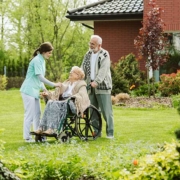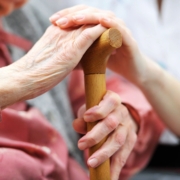Is Social Media Endangering Mississippi Elders?
In Mississippi, as in many parts of the country, the issue of nursing home abuse remains a pressing concern, with the rise of social media adding a new dimension to the ways in which abuse can occur. A recent incident in Iowa has shed light on the outdated laws regulating social media use in nursing homes, prompting a need for legal and policy reform to protect vulnerable residents.
Caretaker Abuse and Social Media
The case in Iowa involved a Certified Nursing Assistant (CNA) who exploited a nursing home resident by posting a degrading photo of the individual on social media. The photo showed the resident partially undressed and in a compromising situation, but state health officials deemed it not illegal due to the lack of visible genitals, thus not classifying it as “sexual exploitation by a caretaker.” Despite the caretaker’s dismissal, the absence of a legal repercussion leaves open the possibility of her employment in similar roles elsewhere.
The Need for Updated Policies
This incident highlights the urgent need for nursing homes to update their policies regarding the use of social media by employees. Advocates for the elderly are calling for:
- Enhanced training for both current and prospective nursing home employees to address potential abuses via social media.
- Amendments to employment policies making social media abuse a clear ground for termination.
Additionally, some social media platforms are revising their privacy and abuse policies in response to such misuse, though much remains to be done to enforce these changes effectively.
Legislative Action and Advocacy
Lawmakers and lobbyists who specialize in elder rights are actively working to draft new laws that protect the elderly from social media exploitation. The goal is to create legal frameworks that recognize the unique vulnerabilities of nursing home residents and provide robust protections against all forms of abuse, including those perpetrated through digital platforms.
Legal Recourse and Civil Action
For families of abused elders, civil action remains a viable avenue for seeking justice and compensation. Nursing home abuse attorneys play a crucial role in these situations. They can help hold nursing homes accountable for failing to adequately train, screen, and supervise their employees. By pursuing financial compensation, these attorneys not only provide relief to the victims and their families but also encourage nursing homes to adopt stricter oversight of their staff.
Role of Personal Injury Attorneys
Personal injury attorneys are also instrumental when dealing with the repercussions of elder abuse. They assess the extent of harm caused and help navigate the complex legal processes involved in securing compensation for medical costs, emotional distress, and other damages resulting from abuse.
Moving Forward: The Role of Attorneys
As social media continues to permeate all aspects of life, the role of attorneys specializing in elder law becomes increasingly important. These legal professionals are at the forefront of advocating for necessary changes in law and policy, ensuring that the rights of the most vulnerable are protected in both traditional and digital realms.
Conclusion
The intersection of social media and elder care presents new challenges that require an evolved legal response. In Mississippi and beyond, there is a clear need for updated regulations and more stringent policies within nursing homes to safeguard against abuse. Legal experts and advocates must continue to push for reforms that address these modern issues while providing a safety net for those affected by such abuses.























